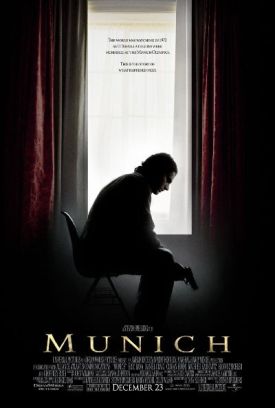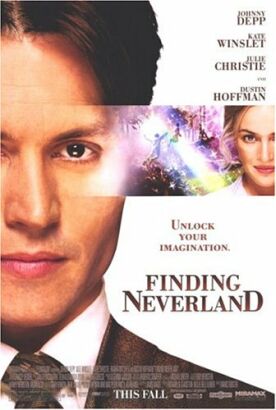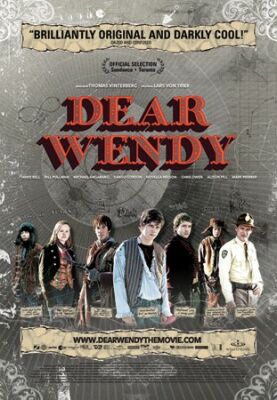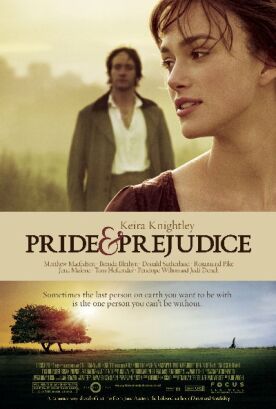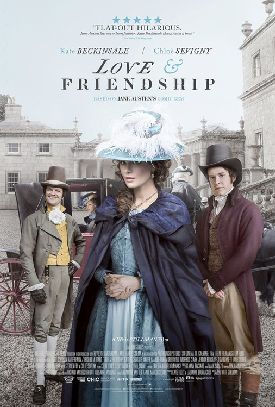Munich
Are Jews better people than Arabs, or Israelis than Palestinians? How could anyone possibly say — even if it were not a question that could only interest someone engaged in some kind of insane ethnic competition? And yet this is the question that lies at the foundation of Steven Spielberg’s new film, Munich. A semi-fictional account, “inspired by real events,” of efforts to take revenge for the slaughter by terrorists of eleven Israeli athletes at the Munich Olympics of 1972, Munich is never less than watchable. Mr Spielberg is a film-maker of genius, almost incapable of doing anything unoriginal or uninteresting on screen. But when he tries to think — and especially when he reaches after profundity, as in Munich — he can only think in clichés. Here are just a few of the conventional ideas served up by Mr Spielberg and his screenwriter, Tony Kushner, in Munich as if no one, or at least no one in Hollywood, had thought of them before:
- Revenge is an uncivilized, savage act that lowers the revenger to the level of his victim.
- As a result there is always a certain moral equivalence between killer and victim, and
- Engaging in revenge perpetuates a cycle of violence.
- Those who are caught up in this cycle and who kill in cold blood often suffer terrible agonies of conscience: nightmares, paranoia, substance abuse and other manifestations of what we have learned to call post-traumatic stress disorder.
- From governments of all kinds, corruption, violence and lack of human compassion is to be expected. Therefore,
- One should put loyalty to one’s family and friends ahead of loyalty to one’s country.
Oh, and just by the way, there’s also that old Hollywood stand-by,
- Extra-marital sex equals death. This time, however, that idea comes with a rather more attractive corollary, namely that
- Marital sex equals life and babies and the survival of the race.
Who knew?
Even the silly idea of trying to put at the center of a drama of nations an individual’s private concern to think of himself as better, more sensitive, more high-minded than others is a trick Spielberg has tried before. In Saving Private Ryan (1998), he made much of little Matt Damon’s emotional maunderings in front of the war graves in Normandy about whether or not he was a good person — as if the deaths of so many men and the massive global project of defeating the Nazis had all been for the sake of little Matt and his precious self-esteem. The same disproportion between the psychic struggles of his heroes — important to them, no doubt, though not so obviously important to the world — and political and military events of world-significance is evident in Munich.
“I’m no good at being noble,” says Rick (Humphrey Bogart) in Casablanca, “but it doesn’t take much to see that the problems of three little people don’t amount to a hill of beans in this crazy world.” Well, now the hill of beans has grown so as to overshadow the crazy world itself. We still want to attribute to Rick’s gesture the nobility he himself wants to deny it, but we seem to forget that he really meant it — and that this is what gave that film its power. Now our hero, a former Mossad agent called Avner (Eric Bana), takes the opposite course to Rick’s, starting off in selfless devotion to a cause and ending by opting to give the priority in his life to his own concerns: his family and his private struggles with his conscience. Is this supposed to be equally moving?
Avner severs his connections with the Israeli government in order to head up the private — “officially unofficial” — vendetta against those who aided and abetted the Munich terrorists. Also on his team are the hot-headed South African, Steve (Daniel Craig), the nerdy technician and bomb-maker, Robert (Mathieu Kassovitz), the mild mannered antiques dealer, Hans (Hanns Zischler), and the man whose job it is to worry about covering their tracks, Carl (Ciarán Hinds). Throughout, the film is punctuated by Avner’s meetings with Louis (Mathieu Amalric), his mysterious French source of information on the whereabouts of the terrorists. When things begin to go awry and the wrong people to die, the question of Louis’s loyalty briefly arises, only to be dismissed. Perhaps as Louis has introduced himself as a man of no political loyalties — he is “ideologically promiscuous,” as he puts it — he is too close to what is emerging as the Spielbergian ideal to be a plausible villain.
Louis even takes Avner home to meet his papa (Michael Lonsdale), a wise old bird who pronounces a bit prematurely the film’s message, namely that all governments are not to be trusted, and that the only thing that matters is family. There is meant to be an irony here in the repeated references to “home” and the competition between Arab and Israeli to call the lands occupied by Israel “home.” Different ideas of home and family inspire both the massacre and the Israeli revenge, but in the end it is Avner’s most immediate family, his wife and daughter, who pull him away from his home in Israel. The point is used to shore up the moral equivalence argument, which is more directly made in a conversation between Avner and a Palestinian called Ali (Omar Metwally) when Israeli and Palestinian units, the one pretending to be from the Red Army faction and the other from the Basque separatist group ETA, find themselves sharing a billet in Greece. And moral equivalence in turn supports and is supported by the “cycle of violence” and “revenge is pointless” arguments.
Though implicit throughout — from the juxtaposition of the photos of the Israeli victims of Munich with those of the gang’s prospective targets to the conversation with Ali — these arguments first emerge explicitly from the mouth of Robert, the bomb-maker. “All this blood will come back to us,” he tells Avner with an agonized look. Being Jewish to him means being righteous, and just lately he’s not been feeling too righteous. Neither, apparently, has Avner, for he soon severs relations not only with his Israeli contact, “Ephraim” (Geoffrey Rush), but with Israel itself and joins his wife and child in Brooklyn. When Ephraim tries to entice him to return to Israel, Avner turns on him: “How do you know they were involved in Munich?” he asks of his own victims. “We should have brought them back to Israel for trial, like Eichmann.”
It’s just a little late in the day to be proposing that, you might think. But thus is suggested the answer to the all-important question of who is the better person, Arab or Jew, Palestinian or Israeli. The answer is that it’s the Jews. Or at least this Jew. And why? Because although both Jew and Arab kill without mercy, this Jew feels really bad about it afterwards. Spielberg makes the point directly when, after the murder of their first victim, the gang have a discussion about whether or not it is right to celebrate. Celebration is OK, says Avner judiciously, but not rejoicing. Then they watch on television the jubilation of the Arabs over the return of some other terrorists after their latest atrocity, and Steve can’t help noticing: “No qualms about rejoicing on their side. Look at them” he says. “They’re movie stars.”
Too true. And, he might have added, in that observation lies the reason why a consummate film-maker like Steven Spielberg made the film he did. For the movies demand the kind of moral equivalence he so obligingly provides. All that matters to the camera is emotion, and in emotional terms there is no right or wrong, terrorist or victim. All are victims together, and Avner’s symptoms of post-traumatic stress naturally weigh equally in the scales with the sufferings of his victims — which in turn weigh equally with the sufferings of the Israeli athletes they murdered. There’s no right and wrong to the camera, just undifferentiated human emotion. It’s not the movies’ fault. That’s just what they do. But it is a reason why a movie about the most serious and important moral and political matters should only be made by someone who is much more than a movie-maker.
Discover more from James Bowman
Subscribe to get the latest posts to your email.

